Cocktail expert Adam Lantheaume isn’t afraid to call it as he sees it. Making drinks without adding a dash or two of bitters is like cooking without seasoning.
“We think of cocktail bitters as the spice cabinet of the bartender,” he says. And things are getting spicier by the minute on the bar scene.
Rhubarb bitters? They’re out there. Macadamia nut, papaya bitters? Ditto. There even are chocolate bitters and one made from a single-malt scotch. It’s a bitters boom.
Will Elliott, head bartender at Maison Premier in Brooklyn, has seen the proliferation and regionalization of bitters. “It’s turned into a big cottage industry. The viewpoint from the consumer seems to be that it’s just essential to any drink. Ten years ago, it was such an afterthought.”
All bitters serve essentially the same purpose – to unify and highlight other ingredients, mostly in cocktails, but sometimes in food.
They are made by distilling herbs, seeds, roots and other ingredients, and – true to their name – have a bitter or bittersweet taste and potent aroma.
Angostura is the granddaddy of the bitters world, created in Venezuela in the early 19th century by a German doctor looking to improve the troops’ digestive health. It’s still made today by House of Angostura and often is used for cooking as well as classic cocktails.
Another classic bitters is Peychaud’s, which was created by Antoine Amedee Peychaud in New Orleans and is a key ingredient of the Sazerac cocktail.
But those are just the start. As founder and proprietor of The Boston Shaker, a cocktail tools and ingredients store in Somerville, Mass., Lantheaume has seen a bitters renaissance as the craft cocktail movement has pushed bartenders and home enthusiasts to search for quality ingredients and more intense flavors.
Some of the brands carried in the Boston Shaker: Fee Brothers, Hella Bitter, Bittermens and Bitters, Old Men. (There’s just something about the word “bitters” that seems to bring out the word play.)
Some bartenders are even making their own bitters by macerating various ingredients in high-proof alcohol, then straining off the bitters.
Another trend is barrel-aging bitters to further tease out flavors.
If you’re new to bitters, be aware that there are two types.
Potable bitters – such as amaro, an herbal liqueur – can be drunk straight, often as a digestif at the end of a meal, or mixed in a drink. Campari falls into this category.
Non-potable bitters – such as Angostura – are intense and work as an ingredient only. These usually are measured by the drop or dash.
Bitters may go back as far as the ancient Egyptians and for much of their history were considered medicinal, says Benjamin Wood, beverage director at Distilled, in New York City’s Tribeca neighborhood.
Adding bitters to a drink doesn’t have to be complicated. It can be as simple as taking a classic gin and tonic and adding a dash or two of grapefruit bitters to heighten the taste.
“Science says aroma can affect flavor by 70 or 80 percent,” says Wood. “If you can utilize bitters in that way and really think about aromatics on top of balancing flavor profiles in a cocktail, then it’ll be a longer-lasting experience for the consumer and hopefully they’ll remember it and come back.”
The following recipes were all created by Alison Ladman, recipe tester for The Associated Press and bakery owner in Concord, N.H.
SWEDISH MULE
Start to finish: 5 minutes
Servings: 1
2 ounces vodka
3- to 4-inch strip of orange zest
1 sprig fresh mint
2 dashes cardamom bitters
Ice
Ginger beer, cold
In a tall glass, combine the vodka, orange zest, mint and cardamom bitters. Use a muddler or wooden spoon to bruise the zest and mint.
Add ice, then top with ginger beer and stir gently to combine.
DARK NIGHT
A fresh chili gives this scotch-based cocktail just a hint of bite. Select a chili according to your heat tolerance. A jalapeno would work for most people. But if you like it hot, try a habanero.
Start to finish: 5 minutes
Servings: 1
2 ounces scotch
1/2 ounce coffee liqueur
1/2 chili (ribs and seeds removed, if desired)
2 dashes chocolate bitters
Amarena cherries, to garnish
In a tumbler, combine the scotch, coffee liqueur, chili and chocolate bitters.
Stir and muddle the chili with a spoon or muddler.
Remove and discard the chili, then add a couple cherries.
GREEN MOUNTAIN
Start to finish: 5 minutes
Servings: 1
Maple sugar, to garnish
2 ounces apple cider
Ice
1/2 ounce Tuaca liqueur
1/2 ounce apple brandy
1 ounce bourbon
2 dashes maple bitters
Moisten the rim of a cocktail glass with a bit of the cider. Dunk the moistened edge in the maple sugar to rim the glass.
In a cocktail shaker filled with ice, combine the cider, Tuaca, apple brandy, bourbon and maple bitters.
Shake vigorously, then strain into the prepared glass.
SUMMER RAIN
Start to finish: 5 minutes
Servings: 1
1 sprig fresh thyme
1/2 teaspoon sugar
1 ounce sour orange juice (or 1/2 ounce each of lemon juice and orange juice)
1/2 ounce orange liqueur
1 ounce reposado tequila
2 dashes rhubarb bitters
In a cocktail shaker, muddle the thyme with the sugar.
Add the sour orange juice, orange liqueur, tequila and rhubarb bitters.
Add ice, then shake vigorously. Strain into a small glass.
BREEZY MARIA
Start to finish: 5 minutes
Servings: 1
1 ounce Lillet
1 ounce gin
1 dash celery bitters
1/4 large tomato
Juice of 1/2 lime
1-inch segment peeled cucumber
Ice
Combine all ingredients except the ice in a cocktail shaker. Use a muddler to crush the vegetables to a pulp.
Add ice, then shake vigorously. Strain into an ice-filled tumbler.
Send questions/comments to the editors.

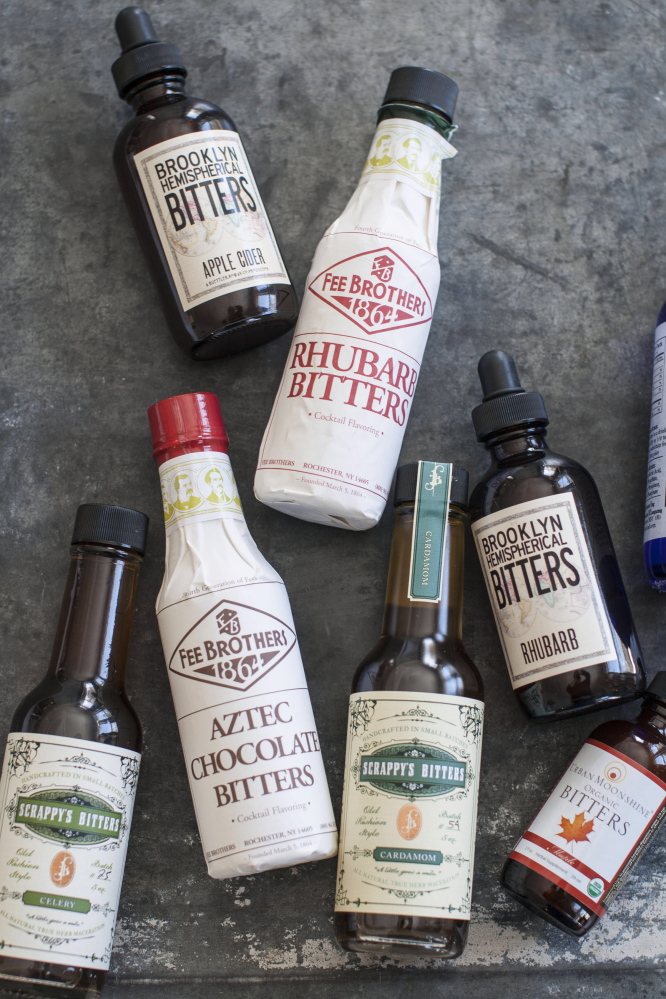
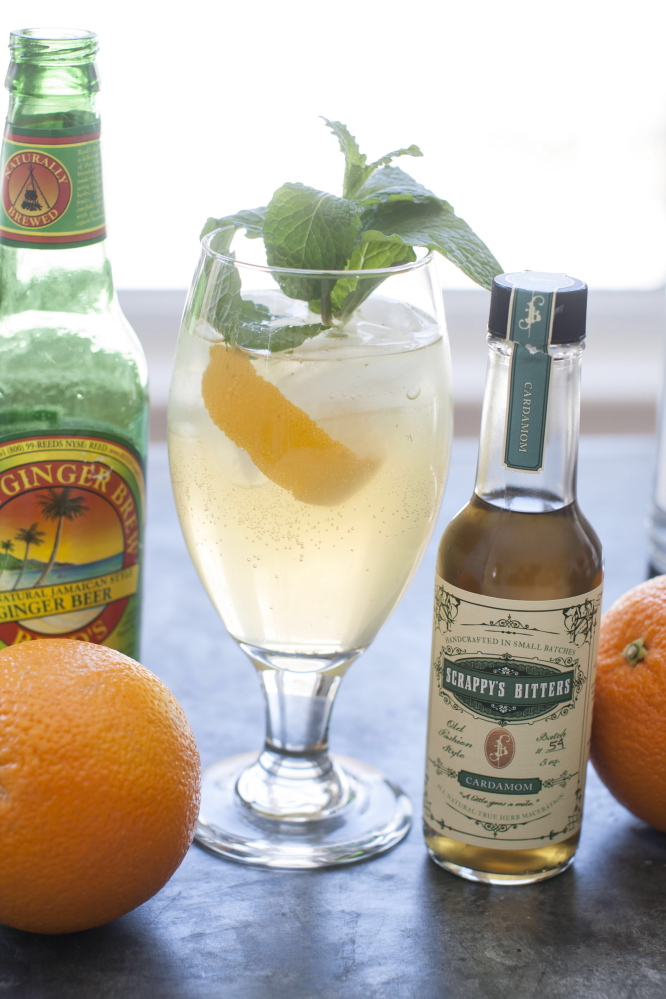
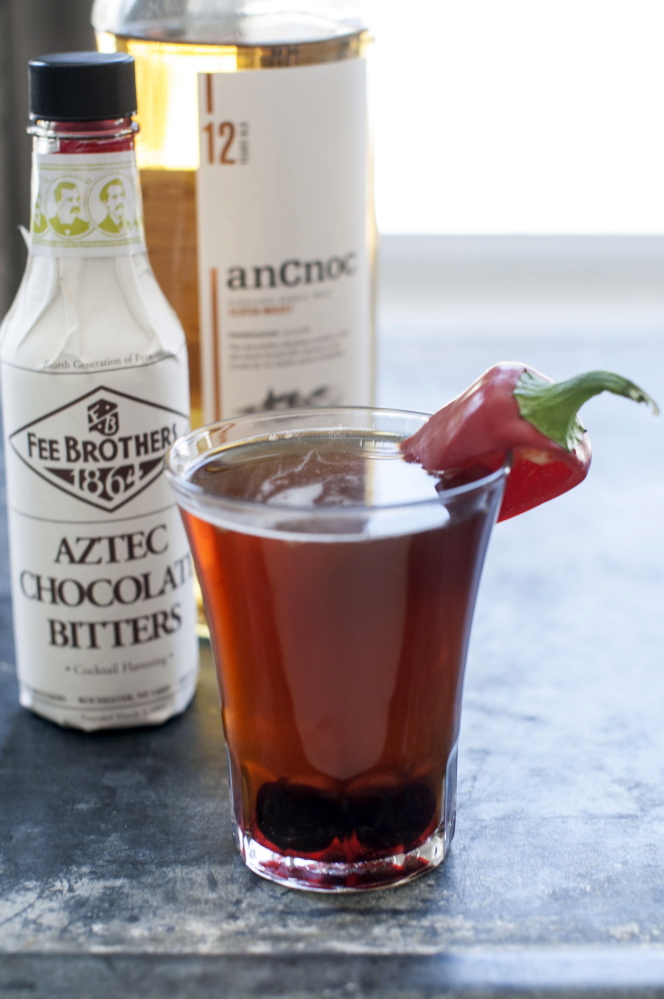
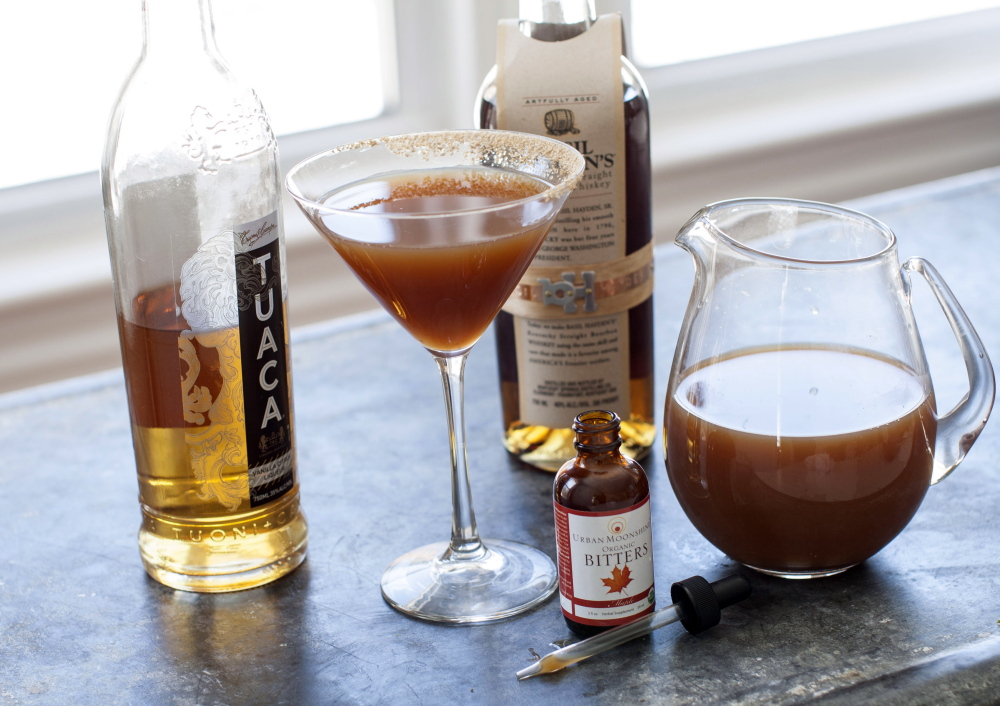
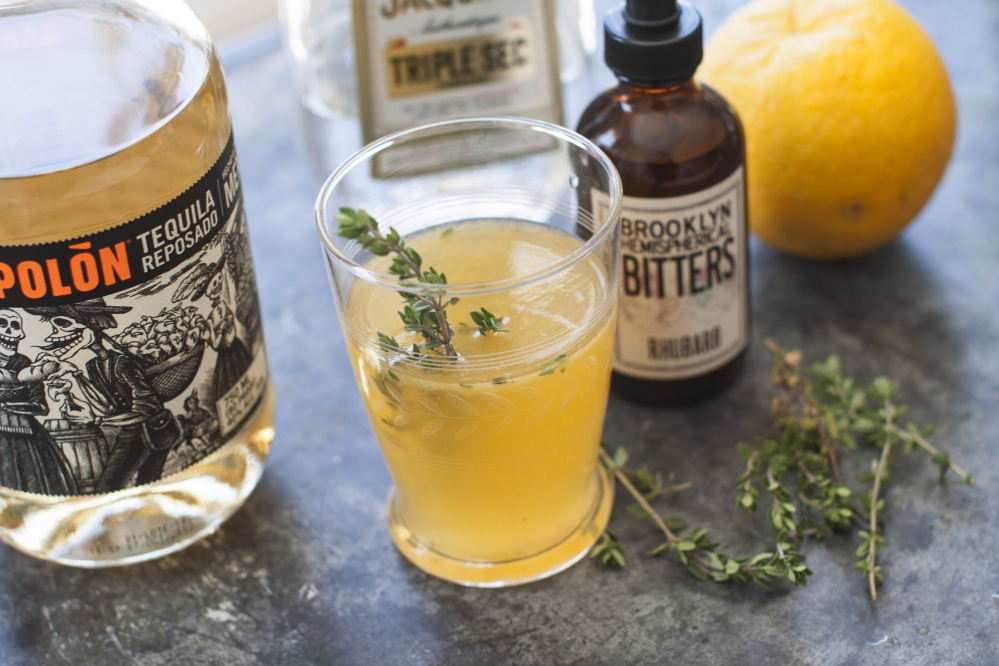

Success. Please wait for the page to reload. If the page does not reload within 5 seconds, please refresh the page.
Enter your email and password to access comments.
Hi, to comment on stories you must . This profile is in addition to your subscription and website login.
Already have a commenting profile? .
Invalid username/password.
Please check your email to confirm and complete your registration.
Only subscribers are eligible to post comments. Please subscribe or login first for digital access. Here’s why.
Use the form below to reset your password. When you've submitted your account email, we will send an email with a reset code.